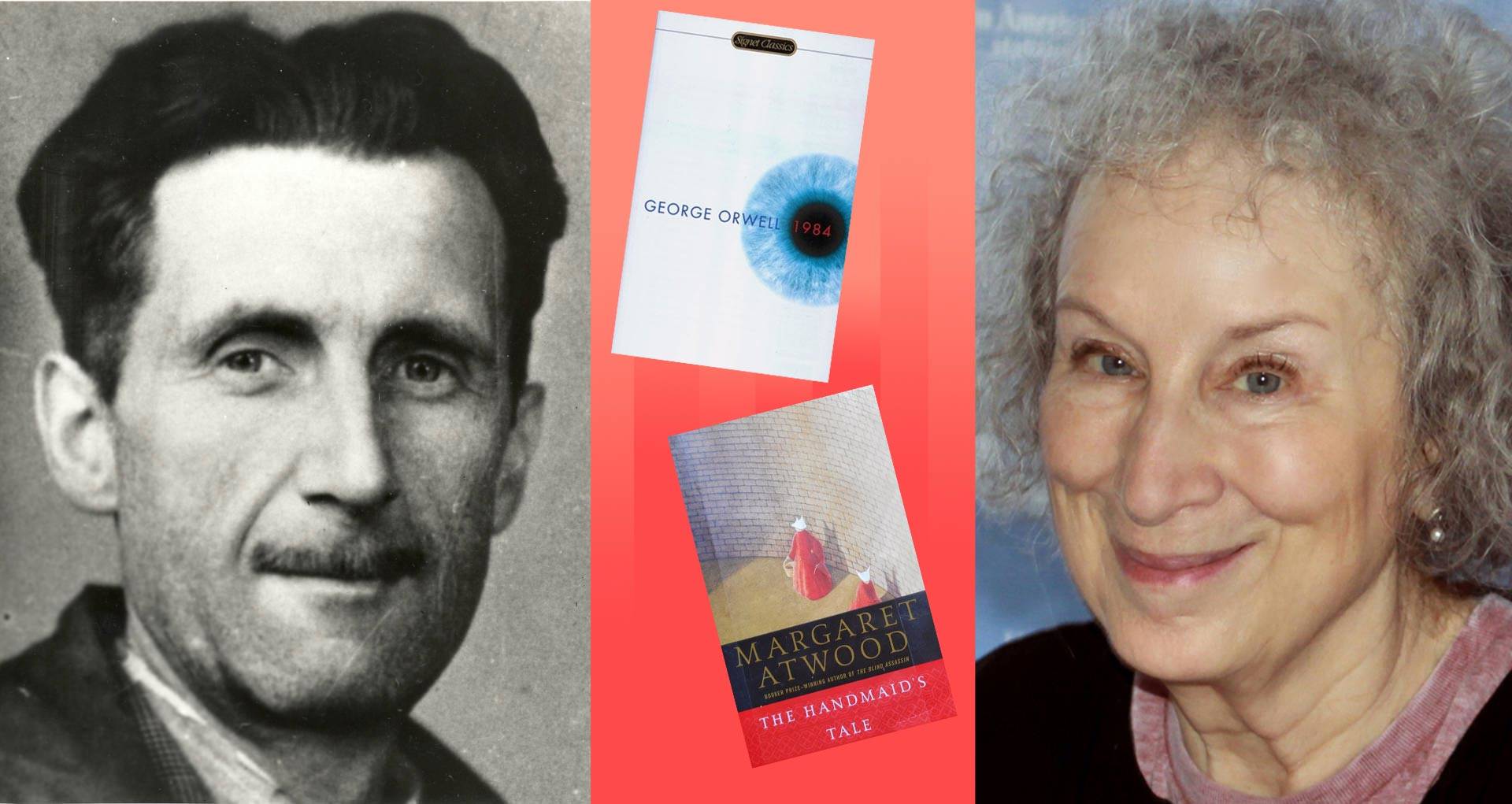Stephen Sparks of Point Reyes Books was the first bookseller to participate in the free-books venture. I asked his opinion about the relevance of 1984.
“I think 1984 speaks so much to our moment because of Orwell’s ability to probe the language of authoritarianism and to demonstrate how slippery truth can be and how those in power can manipulate it (“alternative facts”) to further their ends,” Sparks says. “For many of us, the famous slogans in the novel — WAR IS PEACE. FREEDOM IS SLAVERY. IGNORANCE IS STRENGTH — are keystones for understanding corruption.”
Sinking into the couch with this dystopian masterpiece, I noted uncomfortable parallels to our times. There is the Big Brother party slogan — Who controls the past, controls the future: who controls the present controls the past.
There’s Orwell’s Ministry of Truth, gratingly reminiscent of a fake news empire — if said fake-news empire was backed by the government and its reach dipped not only into our newspapers but into our history books. In 1984 the government has the power to retroactively change truth to make it fit into a larger narrative of prosperity, happiness, and perpetual victory.
Then there is the concept of Doublethink, one of the most important and lasting ideas in this book, which recalled Kellyanne Conway’s tactics in speaking to the press:
“To know and not to know, to be conscious of complete truthfulness while telling carefully-constructed lies, to hold simultaneously two opinions which cancelled out, knowing them to be contradictory and believing in both of them; to use logic against logic, to repudiate morality while laying claim to it, to believe that democracy was impossible and that the Party was guardian of democracy; to forget whatever it was necessary to forget, then to draw it back into memory again at the moment when it was needed, and then promptly forget it again: and above all, to apply the same process to the process itself.”
1984 is not the only book being given away since the election. On Jan. 20, many bookstores followed the lead of Portland’s Broadway Books and gave out free copies of Chimananda Ngochie Adichie’s We Should All Be Feminists.
And another anonymous donor has undertaken to buy and give away at different bookstores Margaret Atwood’s The Handmaid’s Tale. They wrote over email, “I’ve been joking-not-joking for a while that someone needed to tell the Republicans that Atwood, Butler, Bradbury, etc, weren’t meant to be how-to manuals.”


